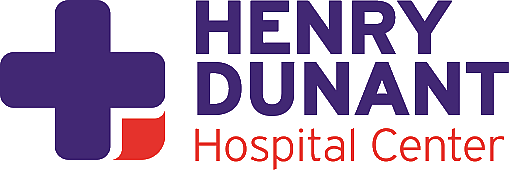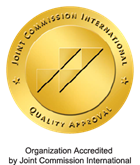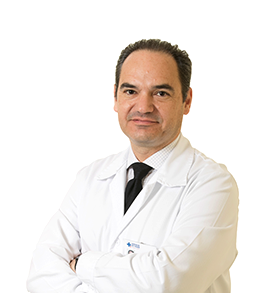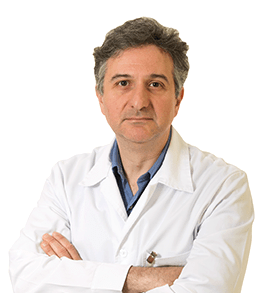
Nuclear Medicine Theranostics Center
Henry Dunant Hospital Center, a pioneer in cutting-edge technologies and investment in people, has created the first integrated Nuclear Medicine Theranostics Center in Athens and the only one in private healthcare. The first digital PET/CT scanner in a private hospital and a state-of-the-art SPECT/CT camera have been installed and are fully operational. Through these imaging systems and the use of all radiopharmaceuticals currently available in the Greek market, including Ga-68, which is necessary for imaging Neuroendocrine Tumors, combined with the application of AI systems, reliable diagnostic results are achieved, and where the requirements are met, our center is fully organized for the performance of radionuclide treatments, being staffed with medical staff, technicians, nurses as well as Medical Physicists specializing in Nuclear Medicine treatments.
Telephone: (+30)210-6972093
Call Appointment: (+30)210-6972004
Call Center: (+30)210-6972000
E-mail: piriniki@dunant.gr
Director: Koutsikos Ioannis
Activities
Diagnostic tests
SPECT/CT
In addition to the imaging listed*, the state-of-the-art SPECT/CT gamma camera (Siemens Prospecta) provides the possibility of performing “hybrid” imaging, by combining nuclear tomographic studies with low-dose CT. The resulting benefits are numerous, as in addition to more accurate imaging, e.g. in heart scintigraphy through attenuation correction, accurate anatomical localization of lesions is achieved in a number of studies, which is necessary inter alia: in orthopedic studies (for the investigation of osteomyelitis), in endocrinology (thyroid Ca, hyperparathyroidism) and in post-treatment imaging in the context of theranostics (Lu-177 DOTA, Lu-177 PSMA).
In the Henry Dunant Nuclear Medicine Center are carried out the following diagnostic tests, with the possibility of dynamic and tomographic studies:
- Whole-body bone scintigraphy and three-base bone scintigraphy.
- Myocardial perfusion scintigraphy (MPS).
- Myocardial scintigraphy with TI-201 for the assessment of myocardial viability.
- Radionuclide Angiography
- Thyroid scintigraphy (Tc-99m, I-123, I-131).
- Parathyroid scintigraphy.
- Scintigraphy for Sentinel Lymph node detection
- Brain scintigraphy.
- Brain scintigraphy for the diagnosis of Parkinson’s disease (DaTscan).
- Static renal scintigraphy.
- Dynamic renal scintigraphy (renogram).
- Adrenal grand scintigraphy with MIBG.
- Lung perfusion scintigraphy (LPS).
- Somatostatin receptor scintigraphy (SRS).
- Scintigraphy for the detection of gastrointestinal bleeding.
- Whole-body I-131 scintigraphy.
- Whole-body Ga-67 scintigraphy.
- Scintigraphic detection of inflammation.
PET/CT
In clinical practice and in most cases, PET/CT is used for oncologic imaging with the use of an appropriate radiopharmaceutical, most commonly F-18 FDG. It plays a decisive role in early diagnosis, initial staging, selection of the appropriate site for biopsy and planning of radiotherapy, in the early assessment of response to treatment, being a valuable prognostic biomarker, in re-staging post treatment, as well as in the detection of possible recurrence. The addition of a gallium generator (68Ga/68Ge generator) further enhances the diagnostic capabilities of our center, now able to carry out the Ga-68 DOTATOC PET/CT examination, contributing to the integrated treatment of neuroendocrine tumors, within the framework of theranostics. The center now performs PET scans using all radiopharmaceuticals currently available in Greece.
Although to a lesser extent, the PET/CT scan is also increasingly employed for investigating inflammations, neurological disorders, myocardial diseases, etc. In collaboration with the Clinic of Endocrine Surgery and the Parathyroid Surgery Department, it is expected to become a reference center for choline PET scans in the investigation of parathyroid adenomas.
The innovative digital equipment for PET/CT scans at Henry Dunant Hospital Center, in addition to enhanced imaging accuracy, offers rapid imaging and reduced radiation exposure to the patient by minimizing the administered dose of radiopharmaceuticals. At the same time, the larger ring width of the scanner makes it ideal for people suffering from claustrophobia.
As referrals from the Greek National Healthcare System (EOPYY) and all other social security institutions are accepted, read here more.
Therapeutic applications of radioisotopes
The Theranostics Nuclear Medicine Center combines diagnosis and targeted treatment through the use of radiopharmaceuticals. The term “theranostics” is derived from the words “therapy” and “diagnostics”, and refers to the fusion of these two “phases” of medical care, allowing more targeted and personalized treatments for patients, particularly in the field of oncology.
Through the state-of-the-art imaging systems installed in 2024, the first digital PET/CT scanner in a private hospital and the newest SPECT/CT system and with the possibility of using all radiopharmaceuticals currently available in the Greek market, including Ga-68, more accurate diagnostic results are achieved, and where the conditions are met, our center is fully organized for the performance of radioisotope treatments.
It features two single bed treatment rooms, fully shielded and equipped with a CCTV through which the specialized nursing and medical staff monitor the patients on a 24-hour basis. They are also equipped with telephone, TV (smart TV) and Internet connection (Wi-Fi). These rooms are for patients requiring Ι-131 therapy for the treatment of malignancies, as well as benign thyroid deceases.
HDHC is the first private hospital in Greece that has treated patients with castration-resistant prostate cancer using alpha-radiation therapy (Ra-223). Moreover, beta-emitters can also be used for the treatment of painful bone metastases, regardless of the primary tumor.
With the addition of 5 more specially designed rooms, our center now performs treatments with Lu-177 DOTATATE in patients with neuroendocrine tumors (NET), with Lu-177 PSMA in patients with metastatic castration-resistant prostate cancer and with Y-90 for the treatment of liver cancer with radioembolization - SIRT.
The specialization of our medical staff in Theranostics Nuclear Medicine, combined with the long experience of the other scientific staff (Medical Physicist, Technologists, Nurses), guarantees the excellent treatment of patients.
Scientific staff
The ΗDHC Nuclear Medicine Theranostics Center not only performs the following in vivo, diagnostic tests, but can carry out imaging studies as well.




